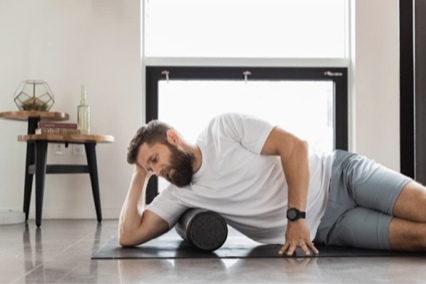Alice Blunden, Articles, In the Press, Internal Medicine, Mental Health, Resources, Yoga Medicine® News
It is Selfish to Be Self-Less
By Alice Blunden for Thrive Global.
Three keys to keep in mind in the critical practice of regular self-care.
My friend works as a lawyer full-time, has two young children and a spouse. Recently, her doctor told her that she needed to find a way to take some time for self-care. When she heard this, she laughed and responded, ‘that’s impossible, how on earth will I find the time!’
The truth is that self-care is important for your physical, mental and over all health. Escalating pressure to do and be everything at work and at home are creating a context breeding exhaustion, overstimulation and the World Health Organization has declared ‘burnouts’ as a global mental health crisis.
Without taking time for self-care, it is quite possible that every aspect of your life could suffer tremendously. So if we want to be a good spouse, manager, colleague, teacher, parent, student or friend… it’s vital that we take care of ourselves first. We have to be a bit selfish to be self-less.
Self-care is an intentional and regular process of committing oneself to protecting, maintaining and sustaining physical and mental wellness and for many of us, it comes in different forms: finding a quiet space, going for a bike ride, learning an instrument or reading a book.
For most of us respite, rest, and time off seem like luxuries. In my own experience working at a school, I often find resistance to the suggestion of self-care. It seems like an unrealistic luxury that’s unachievable when stress-levels are high due to enormous demands around every corner and the never-ending ‘to-do’ list.
The reality is that we often don’t know that stress is negatively affecting our health until we actually get sick. As a society, we need to recognise the important of self-care as a way to build physical and mental resilience. Prioritising self-care needs to shift from being seen as a luxury to being a priority.
Here are three considerations to self-care a regular practice:
1. The Power of the Breath
The power of the breath cannot be underestimated. Our respiratory system has an intimate connection with our nervous system, meaning that our breath has the capacity to change how we feel, how we interact and how we respond to the world around us. And if that wasn’t enough… the benefits of conscious breathing are quick and be felt within a minute or so. Here is my go-to pranayama practice, called ‘ssss’ breath:
- Find a comfortable seat on the ground or on a chair. You can also be standing still or lying down.
- Close your eyes and take a couple of deep breaths in and out through your nose.
- Take a deep inhale through your nose, breathing to the full capacity of your lungs.
- Exhale through your mouth making a long, soft ‘ssssssss’ sound, making your exhalation longer than your inhalation.
- Repeat for 1-3 minutes.
2. Self-Care is not Always Easy
Of course it can be now and again… sometimes self-care might be obtained through inhaling an entire chocolate bar! There’s no doubt that we all need moments of indulgence; this is a healthy and nothing to be ashamed of.
But we need to be mindful that the instant feeling of happiness that comes from over-eating, scrolling through facebook or Instagram is short-lived and sometimes even detrimental to how we care for ourselves. In fact, sustained happiness often comes through growth that isn’t necessarily easy. Some examples of this type of self-care include: going for a run, studying for an exam or taking time to sort your tax return. Probably not particularly pleasurable, but certainly a way to take care of yourself in the long run.
Give Yourself Permission
Most of us feel uncomfortable with the notion of prioritising time for ourselves. We are accustomed to taking care of others and it’s a substantial shift to decide to focus on yourself. This is an example of your values and pride in helping others, but it can also be combined with deeper complexities surrounding a sense of unworthiness. So when we give ourselves permission to invest in ourselves, we are more likely to extract the most amount of benefits from our self-care practices. We realise our great value and know that we need to take care of ourselves so we can continue to be of great service to the world around us.
Self-care isn’t selfish. It’s about prioritizing and protecting your mental and physical health not only as a way to benefit you, but as a way to benefit the people and the world around you as well. Self-care routines are not the same for everyone, but the research gives us a lot of clues as to what can help sustain us: maybe its gardening, maybe it’s running a marathon. What ever it is, schedule it into your life as if it were an appointment. Prevention is less costly than repair.













